Failure to prevent suicide claims seek compensation when a loved one dies by a preventable suicide. To lose a loved one through taking their own life is a tragedy, but to discover a medical professional failed to prevent a suicide adds further pain to the loss.
Medical negligence is care below a standard any other medical professional would provide in similar circumstances. When there is medical negligence in mental health care, the outcome can be fatal, costing the life of a loved one.
Mental health care is all about providing support and noticing alarm signals in vulnerable people. Missing the signs or failing to provide support through diagnosis and treatment may be medical negligence.
The Medical Negligence Team No Win No Fee solicitor can make a compensation claim for a failure to prevent suicide if you lose a loved one in such circumstances.
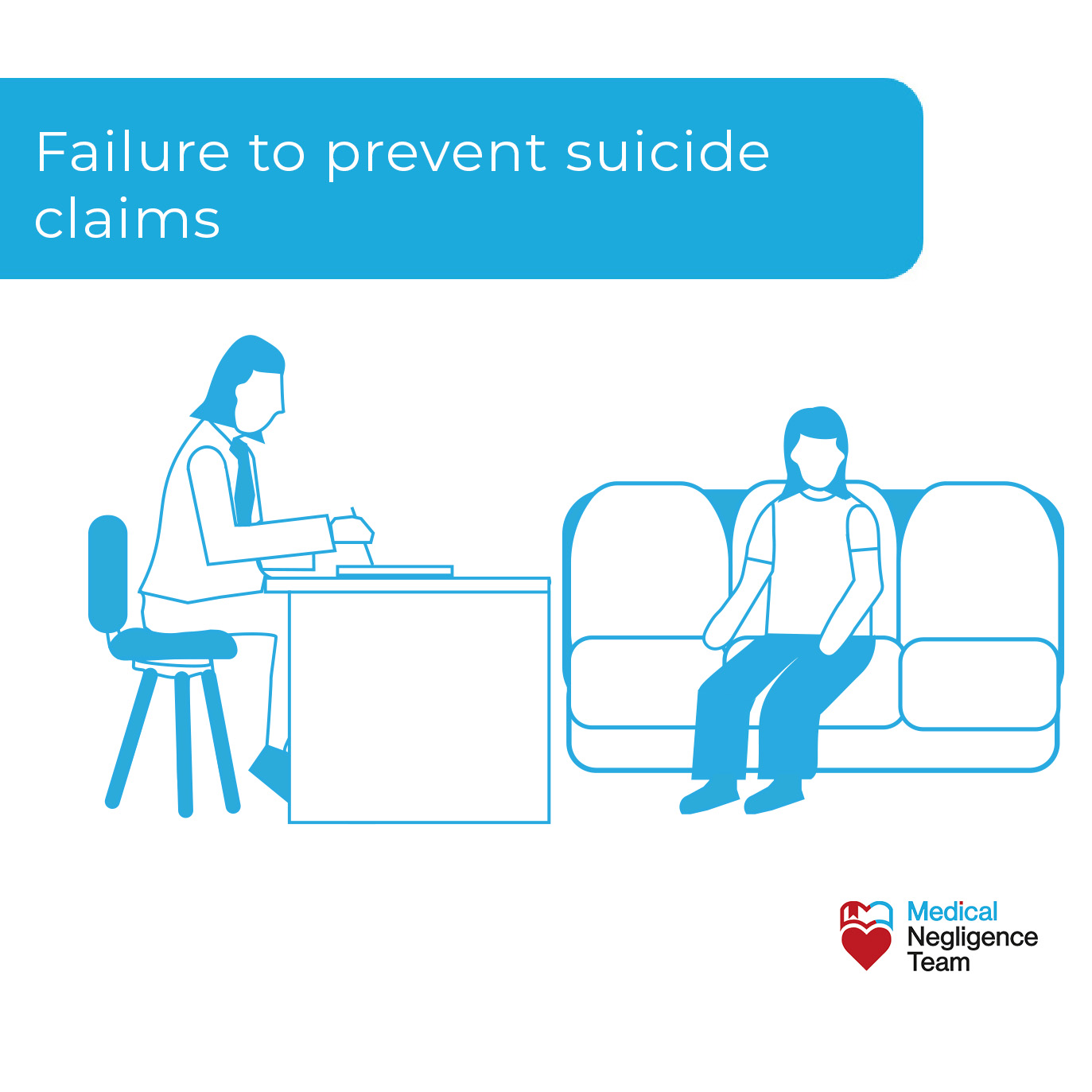
Table of Content
What is a failure to prevent suicide claim?
A failure to prevent suicide claim is when you look for compensation for the medical negligence in the treatment of a loved one’s mental health issues. If you lose a loved one to suicide involving mental health negligence, you may have a failure to prevent suicide claim.
It could be a missed diagnosis of a mental health issue or a failure to prescribe the correct medications, but medical negligence can lead to a failure to prevent suicide claim—those left behind claim for the effects of losing a loved one today and in the future.
In a 15-month period up to the end of December 2023, there were over 4,800 deaths by suicide in the UK. 74% of the suicides were males, and 76% of all suicides were in the 25 to 64 years of age groupings. Mental health professionals should know these figures and be aware of them when treating patients with mental health issues.
A mental health medical professional has a duty of care to patients they see and treat. If they breach that duty of care and a patient dies by suicide, those left behind may have a medical negligence claim for compensation.
A No Win No Fee medical negligence solicitor can look at the case and see if there is a valid medical negligence compensation claim.
Common claims for failing to prevent suicide
Common claims for failing to prevent suicide range from medication errors when treating a mental health issue to a misdiagnosis of a suicide threat to failure to treat a mental health concern.
When a loved one has a serious mental issue, the medical professional treating them has a duty of care to provide a professional level of service. If they breach that duty of care and your loved one dies by suicide, you may have a claim for failing to prevent suicide.
Common claims for failing to prevent suicide:
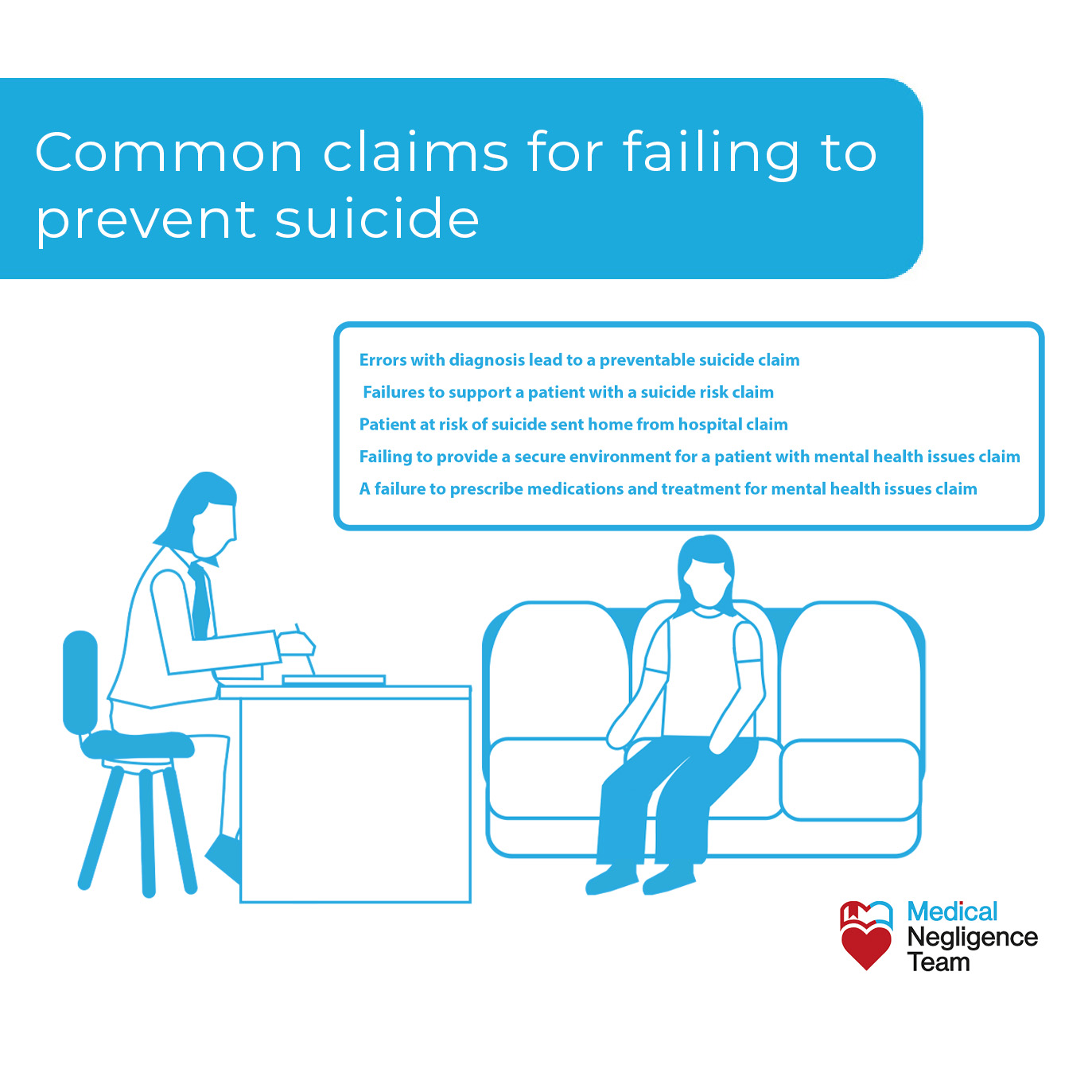
Errors with diagnosis lead to a preventable suicide
Any errors with diagnosis leading to a preventable suicide can form part of the medical negligence claim. The mental health care professionals are trained to diagnose these issues and should not make an error with diagnosis.
Mental health professionals can make diagnosis errors such as:
The family and loved ones left behind may have a failure to prevent suicide claim for compensation.
Failures to support a patient with a suicide risk
A failure to support a patient with a suicide risk can increase the chances of suicide and decrease the chances of a patient making a recovery from a mental health issue. The doctors and nursing staff should provide support to patients with a risk of suicide and reduce the chances of them taking their own life.
Failures to support a patient with a suicide risk are:
A failure to support a patient with severe mental health issues could be a failure to prevent suicide, and the family may have a fatal medical negligence claim.
Patient at risk of suicide sent home from hospital
If a patient at risk of suicide is sent home from hospital, they will not be in a secure environment and could be prone to not taking medications and to putting their lives in danger. The hospital may be the only safe space for a mental health patient, and medical staff must take measures to protect the patient.
A patient at risk of suicide may be sent home from hospital due to:
A medical negligence solicitor can look at the case and see if the family left behind have a valid failure to prevent suicide claim for compensation.
Failing to provide a secure environment for a patient with mental health issues
Failing to provide a secure environment for a patient with mental health issues lies behind many failure to prevent suicide claims. The hospital and medical professional staff have a duty of care to all patients and should provide someone at risk of suicide a safe place to recover.
Failing to provide a secure environment for a patient can be:
The patient at risk of suicide needs a secure environment in which to recover, and a failure to provide one could be medical negligence.
A failure to prescribe medications and treatment for mental health issues
A failure to prescribe medications and treatment for mental health issues can increase the risk of suicide and lead to the death of patients in some cases. The medical professional should prescribe necessary treatment and medication when diagnosing a risk of suicide.
Failures to prescribe medications and treatment for mental health issues are:
Mental health issues need prompt treatment and a prescribing of the correct medications if the patient is at risk of suicide. Failing to do so could lead to a failure to prevent suicide claim.
A No Win No Fee medical negligence solicitor can look at the details of the case and advise you on making a claim for compensation for a failure to prevent suicide.
Our Process
Our team members have a higher career win rate with a 75% success rate on NHS letters of claim, compared to an industry average of 54.5%.
Enquiry
The first step is to get in touch and tell us what went wrong. It’s free and easy. Call our 24-hour helpline: 0800 246 1122 or request a callback here.
Medical Evaluation
Once you have spoken with our team we’ll let you know how we can help. Typically the next step is to obtain your medical records for us to review.
Legal Letter
Once all your medical records have been received they will be reviewed by a medically & legally qualified member of our team. If there is evidence of negligence we will send a letter of claim to the negligent party outlining your compensation claim.
Compensation for failing to prevent suicide
Compensation for failing to prevent suicide, such as when there are errors in the care or treatment of a loved one with a mental health issue, can see amounts from the low £10,000s to over £10 million being awarded in some cases.
The medical negligence of failing to prevent suicide can be by a GP, hospital doctor or treatment centre and may be due to poorly trained staff, administration errors or a misdiagnosis of a mental health issue.
The suicide may have many effects on you and the family left behind, and you can claim compensation for those effects.
The compensation awarded when a medical professional makes an error in treating your loved one, such as not prescribing the correct medications or not finding a bed in a secure ward, depends on many factors, such as the impact on your life today and in the future.
Compensation for a failure to prevent suicide can see awards of:
All amounts are approximate and are only a guide to what is possible in a failure to prevent suicide medical negligence claim. Figures can be high in some claims as you or a loved one could need mental health therapy and have medical bills to pay due to the death of a loved one by a preventable suicide.
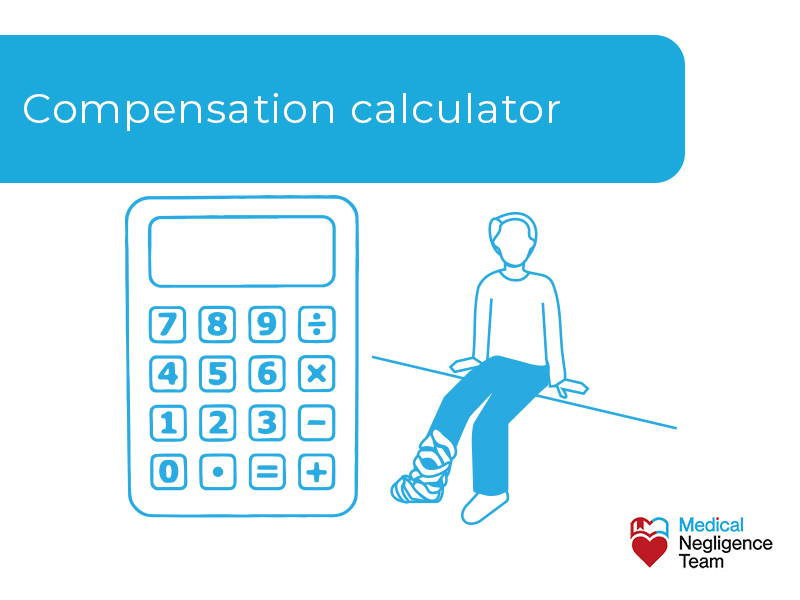
You may be able to claim for any medical expenses and the other losses now and in the future in a failure to prevent suicide case.
As in all medical negligence claims, each case is dealt with on merit and how much the patient suffers due to the medical negligence by the GP, hospital doctor or hospital authority.
A No Win No Fee medical negligence solicitor will advise you about the claim. They will know from experience what your case may be worth and how to make a successful failure to prevent suicide compensation claim.
Who is eligible for compensation in a failure to prevent suicide claim?
The loved ones of the patient who dies by a preventable suicide may be able to claim compensation for their loss. They can claim for the financial effects of the loss of a loved one and for the emotional impact on their lives.
A preventable suicide can be very traumatic for the family left behind. The medical negligence by the GP, hospital doctors or treatment centre can be difficult to accept, and the loved ones can suffer even more in these cases.
The medical negligence may lead to psychological trauma, the need for long-term treatment and financial hardship. The dependants may make a compensation claim for the effects of a failure to prevent suicide.
The loved ones in any medical negligence case are known as ‘dependents’ and can be:
When you have a possible failure to prevent suicide claim, your No Win No Fee medical negligence solicitor can help make the case for compensation.
What can you claim for in compensation for a failure to prevent suicide claim?
You can claim compensation for any damages that occurred when you sue for a failure to prevent suicide claim.
There are two types of compensation damages due when suing for any kind of medical negligence, such as a failure to prevent a suicide:
What can those left behind claim for in a failure to prevent suicide claim?
Those left behind can claim compensation for the damages due to the effects on their lives of the failure to prevent the suicide of a loved one, today and in the future. The loved one may have been a primary income earner for the family or a carer for another family member.
Those left behind may be able to claim for:
The dependents of the victim may have a compensation claim, and a No Win No Fee medical negligence solicitor can guide them through making a claim for a failure to prevent a suicide.
Our Process
Our team members have a higher career win rate with a 75% success rate on NHS letters of claim, compared to an industry average of 54.5%.
Enquiry
The first step is to get in touch and tell us what went wrong. It’s free and easy. Call our 24-hour helpline: 0800 246 1122 or request a callback here.
Medical Evaluation
Once you have spoken with our team we’ll let you know how we can help. Typically the next step is to obtain your medical records for us to review.
Legal Letter
Once all your medical records have been received they will be reviewed by a medically & legally qualified member of our team. If there is evidence of negligence we will send a letter of claim to the negligent party outlining your compensation claim.
Fatal medical negligence due to a failure to follow NICE guidelines
Fatal medical negligence due to a failure to follow NICE guidelines is behind many of the common failure to prevent suicide claims. NICE guidelines exist to try and eliminate errors in the NHS, but fatal negligence may occur when they are not followed.
The National Institute for Health and Care Excellence is a government-sponsored body set up to reduce errors within the NHS. They identify ‘never events,’ the errors which should never happen, and issue guidelines on how to avoid them.
The NICE guidelines are like a list of how-to and how-not-to information points for caring for and treating those with mental health issues. NICE continually updates all information, and the guidelines should be followed by anyone involved in the care of patients who could be at risk of suicide.
When all members of staff and the hospital authorities follow the NICE guidelines, every step is taken to try and prevent a suicide. If staff and the hospital do not follow all NICE guidelines, fatal negligence can happen due to the lack of duty of care by those involved.
You may have a failure to prevent suicide claim if staff do not follow NICE guidelines and your loved one dies by a preventable suicide.
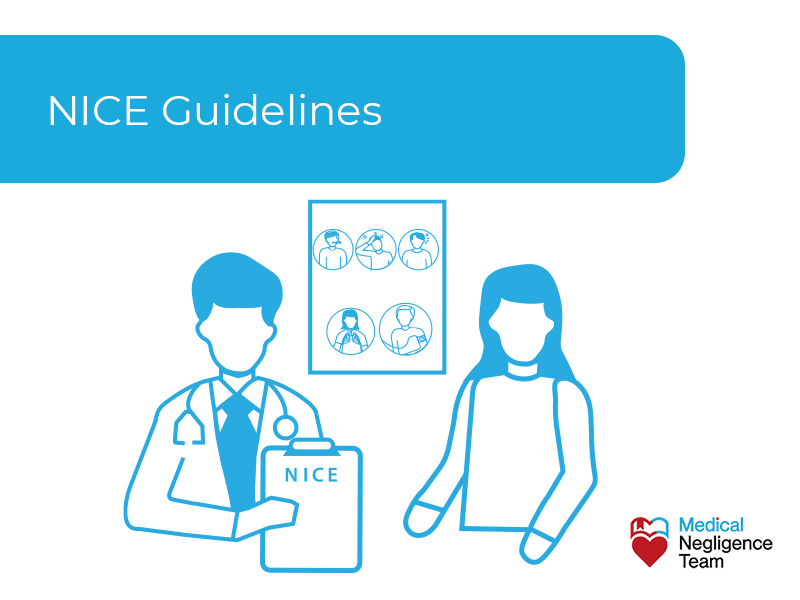
Who is responsible for a failure to prevent a suicide claim?
A medical professional is responsible for any failure to prevent a suicide claim. When dependents bring a claim for fatal medical negligence, they claim against the NHS Trust or private clinic that employed the medical professional responsible.
A medical professional responsible for the fatal medical negligence could be:
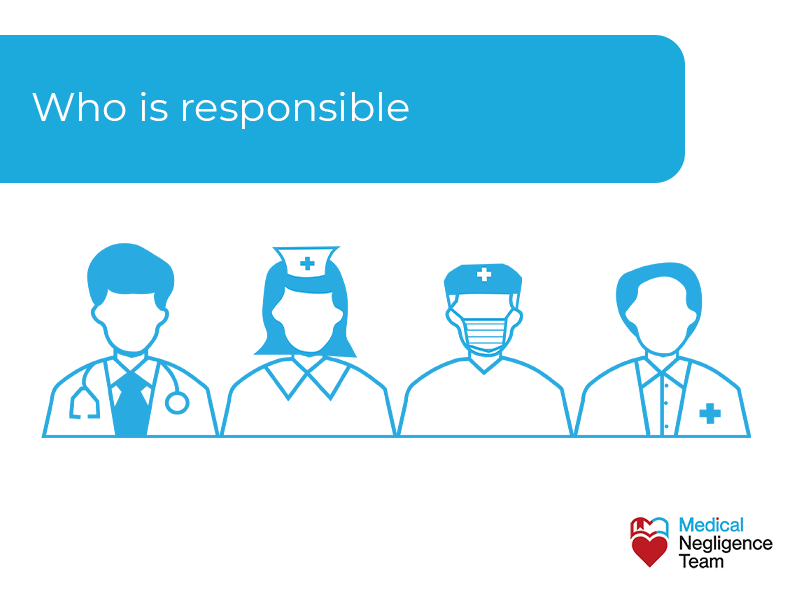
Every medical professional owes patients a duty of care when dealing with their mental health problems. A preventable suicide often happens if doctors are negligent with that duty of care and do not provide a professional service.
Medical negligence is treatment below an acceptable standard by a medical professional. Instead of putting the care needed into your loved one’s mental health care, the treatment team made avoidable errors, which is clear medical negligence.
By behaving less-than-professionally, the doctor risked the health of a loved one, and the financial and emotional effects could be with you for life.
You can claim compensation for the fatal medical negligence and get help getting your life and that of the other dependents back on track after the failure to prevent a suicide.
What are the steps involved in making a fatal medical negligence claim?
The steps involved in making a fatal medical negligence claim go from seeking medical advice to issuing court proceedings.
The steps are a part of any successful compensation case, and settlement can happen at any stage in the process.
Your medical negligence solicitor will do the rest when you follow the steps correctly and gather all the facts and figures after the death of a loved one due to a failure to prevent suicide.
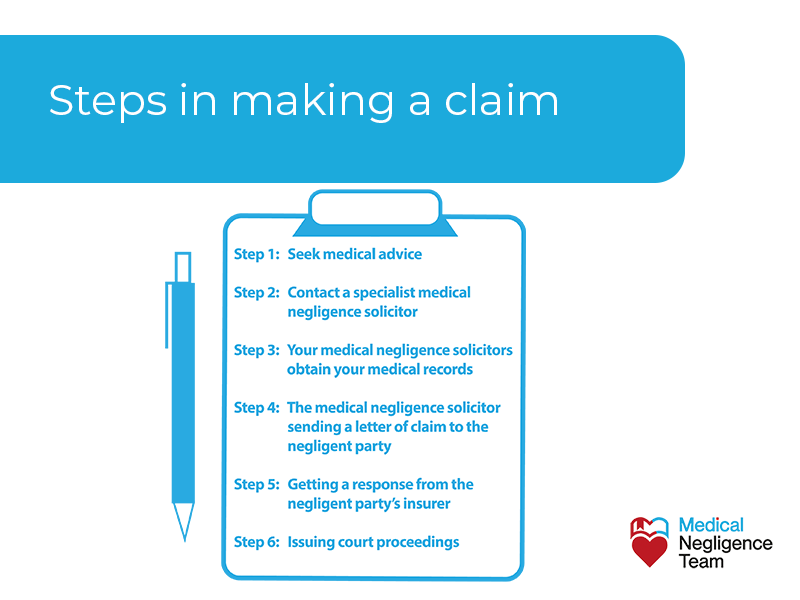
Using a No Win No Fee medical negligence solicitor
Using a No Win No Fee medical negligence solicitor is the only way to a successful failure to prevent suicide claim. Your No Win No Fee medical negligence solicitor will not charge you for a claim you do not win.
The medical negligence solicitor will have experience dealing with the NHS and insurance companies when handling your medical negligence claim. They will know the causes of the negligence, discover who caused the medical negligence in your loved one’s treatment, and the effects of any negligence by a medical professional.
Your No Win No Fee solicitor will handle your compensation claim when you lose a loved one due to a preventable suicide and know how to make it a successful compensation claim.
Always have a fee agreement in place before engaging a medical negligence solicitor. If they start talking of a ‘win fee’ or a ‘success fee,’ you should walk away. The negligent party insurers should pay all fees.
The medical negligence solicitor should also operate a 100% Compensation Guarantee scheme. When you win the case, all the money awarded should go to you, not the solicitor.
You are the one who suffered when a loved one died due to a preventable suicide, and you deserve the compensation to get your life and that of the family back to normal.
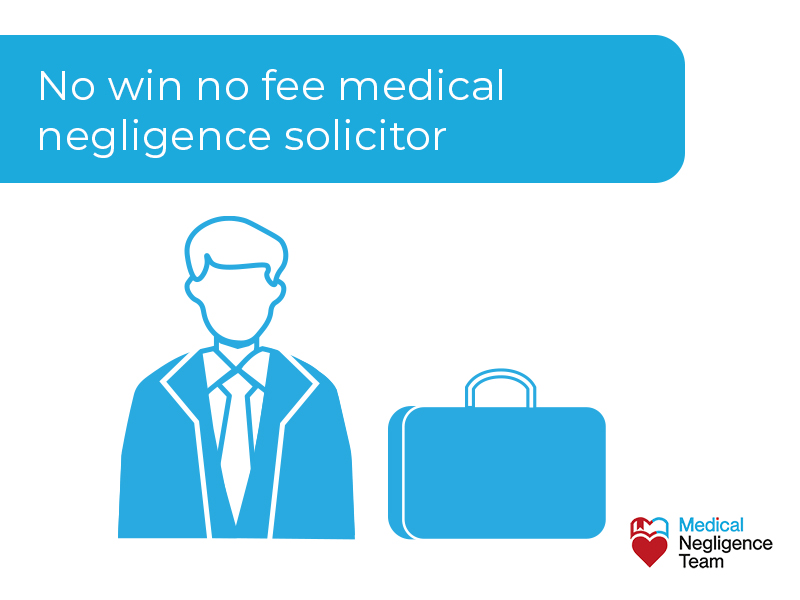
Going to court with a failure to prevent suicide claim?
No, you are very unlikely to have to go to court with a failure to prevent suicide claim.
The majority of cases are settled well before there is a need for court action, and NHS Resolution will see most cases are dealt with, in conjunction with your solicitor, before a referral to court by either side.
The suicide of a loved one can cause you and your family a lot of distress, and if you discover the cause of their death could be due to poor treatment by a medical professional, you will want answers and compensation for the effects of the medical negligence.
Your solicitor will want to keep the medical negligence claim out of court and get it settled in your favour as quickly as possible.
If your claim is one of the very few cases that do go to court, it will be handled by your No Win No Fee medical negligence solicitor.
Contact The Medical Negligence Team
Contact the Medical Negligence Team today to discuss your failure to prevent a suicide claim. You and the family suffered from the effects of the misdiagnosis, missed diagnosis or poor medical treatment of a loved one’s mental health issues, and you may be able to claim compensation for the medical negligence.
At the Medical Negligence Team, we fight every compensation claim on a No Win No Fee basis, and you will not be out of pocket for an unsuccessful claim. We have both the legal and medical experts to guide you along the steps to a successful claim for fatal medical negligence compensation.
We have a very high success rate and a reputation for a speedy and successful resolution to medical negligence claims. Our 100% Compensation Guarantee puts all the money you win into your pocket.
Contact us at the Medical Negligence Team, and let us handle your failure to prevent suicide compensation claim today.

